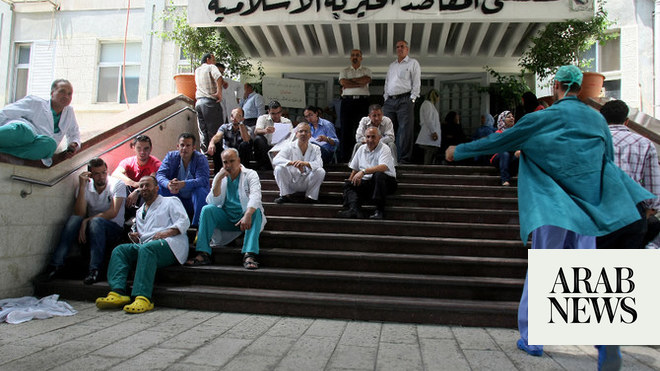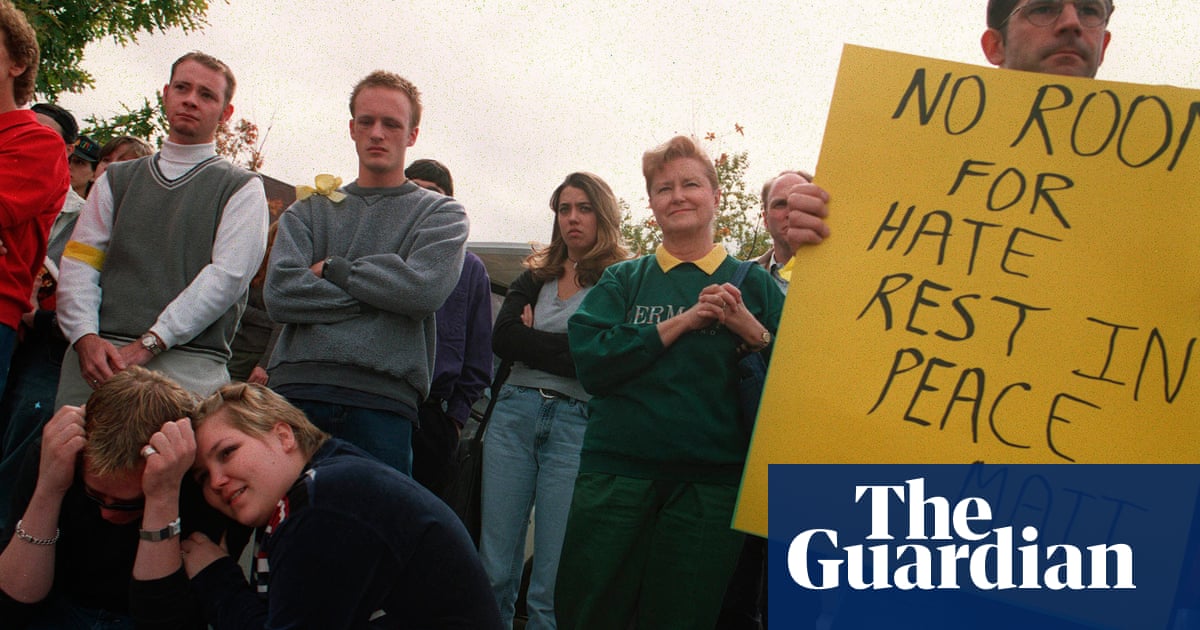
The BBC has upgraded its security protocols after the targeting of a senior journalist and apparent death threats.
A message from Fran Unsworth, director of news and current affairs, sent to staff on Friday morning, and seen by the Observer, revealed the corporation had set up a working group to examine staff safety online, acknowledging the “abuse of journalists is a growing problem”. She urged staff to complete training on how to react to “an in-person attack”.
It follows the haranguing of Newsnight’s political editor, Nicholas Watt, by demonstrators outside Downing Street on Monday and subsequent online trolling of BBC journalists. The Whitehall protesters, a mixture of anti-vaxxers and opponents of lockdown, shouted “traitor” at Watt and accused him of “lying” about lockdowns.
Unsworth wrote: “We know these attacks are more often aimed at women and journalists of colour, so we want to make sure we have particular support for those groups and are looking at what this could be.”
Since the Whitehall incident, the Observer has seen apparent death threats from members of anti-lockdown groups on the messenger app Telegram, some of whom have swapped details of journalists, including their addresses, and have attempted to organise abuse.
Comments posted on Telegram by followers of Paul Joseph Watson, a British conspiracy theorist, include: “I hope he gets killed.” Another added: “If the police weren’t there, he could and should have been lynched.”
On the same thread, another follower wrote: “I hope people track him down.”
One user on an anti-lockdown Telegram channel wrote that it was “payback time”.
On another Telegram chat group, the home address of at least one prominent BBC journalist has been shared.
Other media have been singled out, with a user on an anti-lockdown Telegram channel called “The great reopening (UK)” describing a trainee reporter from the Daily Mail as an “enemy of the people” on 15 June.
A spokesperson for Tech Against Terrorism, an initiative supported by the UN counter-terrorism executive directorate, said anti-vaccine and anti-lockdown activists were becoming increasingly intertwined with the far right on platforms like Telegram.
“Anti-vax conspiracy theorists are increasingly sharing online spaces with violent far-right extremists as both communities are pushed off larger social media platforms.
“These migrations to smaller platforms and resulting convergence of various extremist ideologies can encourage further radicalisation of people who are already vulnerable to extremism,” they added.
Imran Ahmed, chief executive of the Centre for Countering Digital Hate, said anti-vaxxers had gone beyond spreading misinformation to the tactics of intimidation.
“They have sought to spread fear among those spreading good information on Covid by directing their supporters to troll and abuse them. This organised trolling has continued unabated despite repeated warnings to social media bosses.”
The group behind the footage is Resistance GB which operates a number of social media accounts. The largest is its YouTube channel with 25,400 subscribers, which first posted the footage of Watt under the headline: “BBC stooge chased out of anti-lockdown protest over BBC lies”.
In the top 15 comments on the video, Watt is described as a “rat”, an “aristocrat” and “a demon”, and accused of bias, lying and being “in the pocket of the government”. Below the video is a request for donations to Resistance GB.
Analysis by Tech Against Terrorism also found considerable use of antisemitic hate speech by anti-lockdown and anti-vaccine groups. “There is an increasing overlap between anti-vax and far-right narratives, particularly around discussions of global Covid-19 conspiracy theories, many of which draw on antisemitism,” said a Tech Against Terrorism spokesperson.












